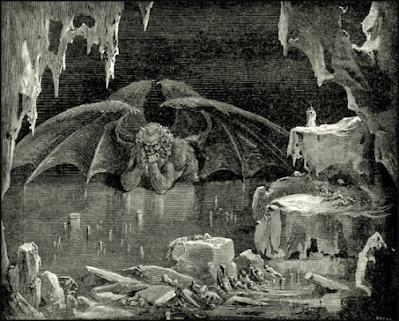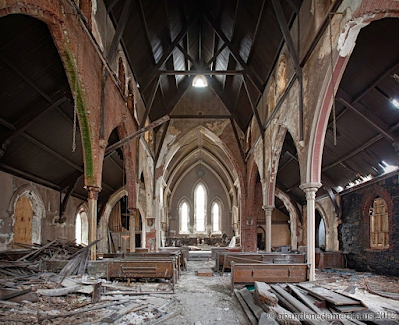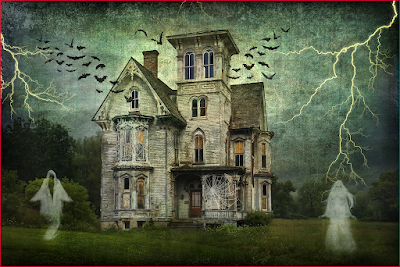Stephen Roney's Blog, page 6
August 9, 2025
It's Good to Be BIPOC, LGBTQ+ and Female
Hollywood and advertising are not the only art forms that have lost their audience through DEI. The poetry world is probably worse, as a Vancouver poet has recently demonstrated.
The result, predictably, has been poetry nobody wants to read.
The Somali Experiment

The revolutionis proceeding apace, at least south of the border. I was shocked recently tohear Matt Walsh call for the mass deportation of Somalis. Their culture, he says,is incompatible with American values.
I cannotimagine hearing this even two years ago. This goes sharply against the leftistdogma that all cultures are equal, and cannot be criticized, since good andevil are themselves culturally relative. And it goes against the leftist dogmathat culture is racially determined, so that any criticism of another cultureis racist.
If Walsh’sposition becomes the American mainstream, everything changes. At least, if thelogic is applied consistently—which rarely actually happens. Leftist “woke”thought has always been wildly inconsistent.
To beginwith, of course, this makes mass immigration look far more dubious as a policy.And this seems to be becoming the consensus across the developed world. Ther havebeen mass demonstrations in England and Ireland, not just the US, and thegovernments have at least begun giving lip service to the idea that massimmigration is a bad thing. And for reasons of cultural incompatibility.
But morethan this: if culture is not genetic, and cultures are not intrinsically equal,this kills multiculturalism. Multiculturalism is just holding people back and restrictingthem to ghettos. Obviously, everyone should gravitate to the best elements, thebest solutions, the best culture; instead of living as an exhibit in a humanzoo. Which is of course the idea the U.S.A. was based on: e pluribus unum, themelting pot. And, of course, this is whatMartin Luther King and the drive for desegregation was all about. We had lostour way.
This also killsaccusations that teaching “First Nations” practical skills in the residentialschools was “cultural genocide.” The reality is that “First Nations” cultureswere, as we actually used to call them, “primitive.” The French explorers usedto say, “sans loi, sans roi, sans foi”: without laws, without government, withoutreligion or philosophy. They were less developed, and produced a lesssatisfactory life. A daily struggle for survival left no time to develop thingslike permanent structures, wheeled vehicles, writing, settled agriculture, andthe like. Without writing, with the old usually dying of exposure orabandonment at a relatively young age, with epidemics wiping out most of thepopulation about every two generations, any innovations discovered by solitarygeniuses over the millennia were unlikely to be remembered and passed on.
This alsomakes the European enterprise of colonialism look less sinister. The argumentat the time was that the European powers were tutoring less developedsocieties, introducing peace and prosperity, orderly systems of government, commerce,and accounting, building schools and railroads and hospitals, and keeping thepeace. Was this altogether wrong? Was it really all about pushing other peoplearound and stealing their resources? If so, how account for the fact thatEuropean colonies usually cost the present country money, rather than makingthem money? How account for the fact that most former colonies took a financialhit post-independence, and many sank into conflict?
Somaliabeing a case in point. Independence has not worked well for the former ItalianSomalia and British Somaliland.
'Od's Blog: Catholic comments on the passing parade.August 8, 2025
Lucifer the Freedom Fighter

At a writers’ meeting I attended recently, the challenge was to write some familiar story from the point of view of the villain. One did Wile Coyote. One did Voldemort. Someone did Pontius Pilate. Someone tried to write about the fallen angels from the Devil’s point of view. Nothing especially shocking about that; Milton did the same. I do not recall the details.
But then someone piped up, “That’s not the way it really happened.”
“What actually happened was that Lucifer was God’s first son. Before Jesus. He was God’s favorite. But he objected to angels not having free will. So God threw him out of heaven.”
Someone else across the table raised an objection: “No, that’s not right.”
And she responded firmly. “You can’t dispute that. It’s the real history.”
The meeting just moved on.
I too was in no mood to challenge something so mad. Especially since she was so adamant. But I was left wondering where this came from, and how she could possibly feel such certainty.
Of course Lucifer’s fall from heaven is not “history.” No historical account is beyond dispute, saying something is history does not end an argument, but even so, history is based on written records from the relevant time. No one was present at the war in heaven, taking notes. It is supposed to have happened at the beginning of creation, before the first man.
Nor does this woman’s account of Lucifer’s motive make any sense. If angels lacked free will, how could Lucifer himself rebel against God?
The Bible says Lucifer rebelled seeking to “make himself like the Most High.”
The Catechism of the Catholic Church says, para 392-3:
“This ‘fall’ consists in the free choice of these created spirits, who radically and irrevocably rejected God and his reign. We find a reflection of that rebellion in the tempter's words to our first parents: ‘You will be like God.’ …
It is the irrevocable character of their choice, and not a defect in the infinite divine mercy, that makes the angels' sin unforgivable. ‘There is no repentance for the angels after their fall, just as there is no repentance for men after death.’”
Lucifer and the fallen angels rejected God’s authority while in his presence. Just as the damned each individually and consciously choose hell at death, in the divine presence. This makes it unambiguous and irreversible. And for the reason Milton gives: “I would rather rule in hell than serve in heaven.”
So, this strange idea does not come from history, as claimed. It is not from the Bible. It is not from Church tradition, and it is not a logical thought. Perhaps this woman was getting her “facts” from some gnostic tradition? But I can’t find anything like it in the gnostic texts. There do seem to be references to Satan as God's elder son in some Mormon scripture; but not the part about free will.
How can someone be so certain of something so strange and counter to traditional understanding, something she might have read somewhere once, that she would assert it adamantly to a room of perhaps twenty people?
Was I dealing with a madwoman? Yet some at the table knew her well, and nobody thought her insane.
It seems to me a symptom of the present age. We have generally become untethered from any sense of truth or reality, so that anyone is free to believe anything, and impose it on those around them by strength of will.
Thus men can decide to be women, or women men. People can continue to believe debunked claims like the mass graves hoax, or the January 6 insurrection hoax, or the Charlotte “fine people” hoax, or the Russia hoax. When you do not believe in God, you can believe in anything, and people believe what they want to believe. Or become paranoid.
This idea of Lucifer as the righteous rebel does sound like something someone might want to believe, if they wanted to deny sin, deny the authority of God, and claim the right to do what they will.
Using Blogger's new AI tool to insert relevant links above. It appeared just today, and trying it out.'Od's Blog: Catholic comments on the passing parade.Who Exactly is Obsolete?

It stands to reason. These are jobs involving systematic reasoning. Thinking in a straight line. That’s what computers do best, and better than humans.
I believe that, truth told, medical doctors are already obsolete. AI can diagnose more reliably than any human. And that is what doctors, other than surgeons, do.
Accounting, too, is systematic reasoning and surely easily automated.
So what does this mean to all those parents, and all those government and other organizations, who have been pushing STEM?
A dead end. As usual, the experts were wrong.
The one thing AI cannot do, and will, I warrant, never be able to do, is to think creatively. It can only reshuffle what is already there.
What we need are the humanities, the fields that tell us why and where we ought to be going. We want philosophers and ethicists and people who know the lessons of history at the controls, asking the right questions and keeping AI on a leash to ensure it serves humanity.
And beyond that, it is the creatives, the artists, poets, inventors and entrepreneurs, who will inherit the earth.
'Od's Blog: Catholic comments on the passing parade.
August 5, 2025
The Death of the Churches

An Anglican priest commented to me yesterday that the Anglican Church in Canada, on present trends, will disappear in fifteen years, by 2040. There are only grey heads in the pews now, and they are dying off.
My friend Xerxes, who is United Church, estimates 2035-2040 for their extinction date.
These are the two largest Protestant denominations in Canada.
The decline has been going on since about 1960; but apparently there was a big drop with COVID. Sources also blame the residential schools scandal, or, as I would call it, the residential schools hoax.
The Catholic Church is not doing that much better. Extinction not in sight, but affiliation and attendance is definitely declining, mostly in Quebec. I cannot find figures for Canada outside Quebec, but for the country as a whole, in ten years from 2011 to 2021, the Catholic population declined from 12.7 million (38.7% of the population) to 10.8 million (29.9%).
One should, perhaps, not worry. “Let go and let God”; He will manage affairs. On the other hand, one thinks of Sodom and Gomorrah. We cannot assume He loves Canada unconditionally. It does not help that we have embraced child sacrifice and various sexual perversions, the stated reasons that he obliterated Canaan and the cities of the plain.
It is true that more evangelical denominations, collectively, have shown “stability or slight growth.” But this does not make up for the mainstream decline.
On the brighter side, these figures may be unnecessarily alarmist. They seem to be based on census figures, so that the last year for which figures are available is 2021-- the height of the Covid pandemic. If Covid was responsible for a large drop in numbers, as is said, and certainly put people out of the habit of going to church, it seems possible there has been some recovery since, or will be over time, which will not show up in these figures until 2031.
The culture may also have been turning since 2021. It has politically, after all, with the resurrection of MAGA and the striking failure since of wokery in advertising, in the media, and in Hollywood.
There are signs of revival since 2021, if largely anecdotal, among Catholics and evangelicals. Record numbers of adult baptisms, celebrities publicly converting, reports of miracles, and of descents of the spirit at mass prayer meetings.
When I turn my head at my local Catholic church, most of the heads are not grey. There are many children, young families.
It is also perhaps natural that mainstream Protestantism is dying. It is perhaps not so much that the people have left the churches; it is more that the churches have left the church and abandoned the people. I went to grad school with Protestant ministers; the faculty was almost entirely Protestant ministers. They tended to scorn traditional belief; it was uncool among them to profess faith in anything. The people on the pew were ignorant peons, clinging to their superstitions. Anglicanism and the United Church preach no consistent doctrine, seeking only to reflect back to the congregation whatever they think they want to hear. Religion bores them, or frightens them; they have pretty much shifted their interests to politics and vaguely “doing good” for the poor or otherwise supposedly disadvantaged.
This makes them redundant: why belong to the United Church instead of the local NDP constituency organization, or the local Red Cross or soup kitchen? Indeed, aren’t you just wasting time and effort by comparison?
The remaining reason to join a church, surely, is to hang out with people you know and like; as a social club. This gives little reason for anyone new to join the organization, or this organization instead of another; when the present cadre dies off, that will be the end of it.
And as a social group, a weekly Sunday meeting, these churches face new competition for everyone’s free time and interest: endless streaming and reading on the internet, social media, video games, online conferencing, AI companions. All voluntary organizations, from the Masons to the St. Andrews Society to the bowling league, are bleeding members. There is too much else to do.
The mainstream Protestants, I think, aew doomed. Yet there is a path for Catholicism, and a crying need, if Pope Leo and the hierarchy have the wisdom, let alone the piety, to seize the times. They need to emphasize what makes going to mass most different from an ordinary day, a Catholic life most different from just living your life. That is, they need to give a solid reason to spend your time in Church instead of somewhere else. The very opposite of the direction things have been going since Vatican II.
Catholicism has a secret weapon here: the eucharist. It requires your physical presence. It cannot be replaced by anything online. It significance and its infinite value should be emphasized by surrounding it with as much distinctive ritual as possible: more bells and smells, more organ music and choir, more reverence in its handling, and yes, a return of the option of a Latin mass.
I am encouraged to see that my local cathedral, last Sunday, started reserving the front row of pews and kneelers for those wishing to receive communion on the tongue. This is, in effect, a return to the communion rail. I asked after the mass where this innovation came from. The celebrant said it was from the bishop; he did not know if it came from higher up.
Perhaps the Holy Spirit.
At the same time, the evangelical groups also demand physical presence for their celebrations, with the electric presence of the Spirit and laying on of hands. Catholicism shares this in the charismatic movement, and this too should be leaned into.
All this is desperately needed, by the many souls abandoned by their own churches, and to restore Canada to God’s grace.
'Od's Blog: Catholic comments on the passing parade.
August 4, 2025
Lolita and the Hellfire Club

I have longsuspected that Stanley Kubrick’s Eyes Wide Shut, was blowing the whistleon some kind of Hellfire Club going on among the prominent and wealthy.
Revelationssince about Jeffrey Epstein and P Diddy and Hillary Clinton’s Russia hoax seemto confirm this. There really has been some sort of immoral cabal at the toprunning much of the society. And this explains many things, like largecorporations seeming to act against their own self-interest, politicians goingagainst the popular will and fearing free speech, and, not least, TrumpDerangement Syndrome.
But for howlong has this been going on? Is it new, or are we only hearing about it now?
Kubrick’s far earlier film, Lolita, 1962, mightalso have been a blow on the whistle. It deals with ephebophilia, whichseems the dominant obsession of the Epstein cult. That is, having sex with young,but post-pubescent, women. An obvious attraction for the rich and powerful: allsocieties and cultures see youth and innocence as highly desirable in women. Soit is reasonable to foresee this as an ideal commodity for a corrupt blackmailcult.
Kubrick filmed Lolita as his first independent production,after breaking a multi-film contract with Kirk Douglas. The two had a bitterfalling out.
In the opening scene of Lolita, James Mason asks PeterSellers, “Are you Quilty?” And Sellers responds, “I am Spartacus. Why, have youcome to free the slaves, or something?”
The film is relatively sympathetic towards Mason as Humbertfor his obsession with underage Lolita. It is a natural enough desire. ButQuilty is the real villain. As the movie’s plot unfolds, he kidnaps theunderage Lolita and takes her to a “dude ranch” full of his “weird friends.”
It sounds so much like the Epstein arrangement.
Spartacus, in Kubrick’s previous film, was played by KirkDouglas. By saying “I am Spartacus,” Quilty/Sellers is identifying himself withDouglas. And implying Douglas in some sense kept slaves, as Quilty does. Perhapsyoung female slaves, as Quilty does.
In 2021, soon following his death, Douglas was accused bythe family of Natalie Wood of having brutally raped her when she was a childstar of sixteen. She and her family had kept silence all these years due tofear of his power and influence.
There are suspicions around another starlet, Jean Spangler. Notunderage; but she disappeared. Her purse was found, with signs of a struggle, containingan unfinished note that read “Kirk: Can’t wait any longer, Going to see Dr.Scott. It will work best this way while mother is away,” She was three monthspregnant. Like the pianist in Eyes Wide Shut, there has been no sign of hersince.
Whatever his experiences with Douglas, as soon as he wasable to get out of that contract, Kubrick decamped to England for the rest ofhis life, a very strange move in terms of career. Although Lolita was set inthe US, Kubrick awkwardly filmed it in England, using what American or Canadianactors resident in the UK to get the accents right. As he did for all therest of his films. Surely a striking eccentricity. As if there was something inHollywood he feared or needed to escape.
Kubrick’s wife has said he had wanted to make Eyes Wide Shutfor years, but felt he was not ready to yet. Not ready? What held him up? Itwas not an expensive story to film in terms of special effects, like some ofthe other films he made before it. It did not require great historicalresearch, like some of the other films he made before it. And as soon as he didmake it, he suddenly died. A heart attack in his sleep, age 70, six days afterthe film’s final cut.
Did they get to him?
Did he let go and die knowing he had finally said whatneeded to be said?
Did he die of the stress of possible reactions from powerfulquarters?
I hope one day we know.
'Od's Blog: Catholic comments on the passing parade.
August 3, 2025
Jesus Was No Socialist
 Why are haunted houses never small or modest?
Why are haunted houses never small or modest?First Reading: Ecclesiastes 1: 2; 2: 21-23
Vanity of vanities, says Qoheleth, vanity of vanities! All things are vanity!Here is one who has labored with wisdom and knowledge and skill, and yet to another who has not labored over it, he must leave property. This also is vanity and a great evil.
For what profit comes to man from all the toil and anxiety of heart with which he has labored under the sun?
All his days sorrow and grief are his occupation; even at night his mind is not at rest.
This also is vanity.
Second Reading: Colossians 3: 1-5, 9-11
1 Therefore, if you be risen with Christ, seek the things that are above; where Christ is sitting at the right hand of God:
2 Mind the things that are above, not the things that are upon the earth.
3 For you are dead; and your life is hid with Christ in God.
4 When Christ shall appear, who is your life, then you also shall appear with him in glory.
5 Mortify therefore your members which are upon the earth; fornication, uncleanness, lust, evil concupiscence, and covetousness, which is the service of idols.
9 Lie not one to another: stripping yourselves of the old man with his deeds,
10 And putting on the new, him who is renewed unto knowledge, according to the image of him that created him.
11 Where there is neither Gentile nor Jew, circumcision nor uncircumcision, Barbarian nor Scythian, bond nor free. But Christ is all, and in all.
Gospel: Luke 12: 13-21
13 And one of the multitude said to him: Master, speak to my brother that he divide the inheritance with me.
14 But he said to him: Man, who hath appointed me judge, or divider, over you?
15 And he said to them: Take heed and beware of all covetousness; for a man’s life doth not consist in the abundance of things which he possesseth.
16 And he spoke a similitude to them, saying: The land of a certain rich man brought forth plenty of fruits.
17 And he thought within himself, saying: What shall I do, because I have no room where to bestow my fruits?
18 And he said: This will I do: I will pull down my barns, and will build greater; and into them will I gather all things that are grown to me, and my goods.
19 And I will say to my soul: Soul, thou hast much goods laid up for many years take thy rest; eat, drink, make good cheer.
20 But God said to him: Thou fool, this night do they require thy soul of thee: and whose shall those things be which thou hast provided?
21 So is he that layeth up treasure for himself, and is not rich towards God.
These mass readings for this Sunday amount to a clear rejection of the left-wing idea of “equity.” Justice, Ecclesiastes asserts, requires that a man keep what he has earned from his labour. Not just his physical labour, but also what he has earned from his wisdom, and knowledge, and care. No doubt it is legitimate for government to take some in return for services rendered. No doubt it makes sense to provide a “social safety net” as group insurance. But for a government to get into the business of wealth redistribution is, in the words of Ecclesiastes, “a great evil.” That should settle the matter.
If not, the Gospel conveys the same message. Someone comes to Jesus demanding that his brother divide their inheritance equally. And Jesus refuses. So much for Marxist equity.
Jesus says “who hath appointed me judge over you?” This is odd, and commands our attention, because Jesus is the rightful judge of the deeds of all. No one has to appoint him. How is it he has no authority in this case?
Because there is no moral issue involved. In an inheritance, neither party has earned the money. Neither has a moral right to it. So it is an administrative issue, a matter for king or Caesar: what does the law say?
Jesus then goes on to address the moral issue: demanding equity is the sin of covetousness.
This is not to let the rich off the hook. This is not to praise the rich. As the second, epistolatory reading tells us, their pursuit of riches is idolatry.
I worked for some years in Toronto with and among the “mentally ill.” Some of the names of these street people might surprise you. You might recognize some of the family names. A striking proportion of the severely mentally ill come from prominent families. Few seem to emerge from wealthy families with psyches fully healthy and intact. Most large old houses are haunted, and have closets full of skeletons. We know this, as a folk truth.
Thoe who are rich are likely to be covetous; for those who are covetous are likely to grow rich. This is obvious on the simple and self-evident principle that when we try to get something, we are more likely to get it. The same will be true for those who strive for social prominence. They are almost inevitably idolators.
Mental illness is spiritual illness. Mental illness naturally comes of growing up in a family with values askew. And the sins of the fathers are visited upon the sons, unto the third and fourth generation.
The rich are not to be praised or admired; at the same time, it is folly to envy the rich.
'Od's Blog: Catholic comments on the passing parade.
August 2, 2025
Are the Times Still A'Changin'?
I recently inadvertently uncovered the essential difference between right wing and left wing perceptions.
In a poetry group, I was given Dylan’s “The Times, They Are A’Changin’” as a prompt.
My immediate thought was that, if that song is still relevant today, times have been a-changin’ since at least 1964. Over sixty years. And yet, all the things we wanted changed then seem still to be with us, or back with us, or many claim are still with us—notably those on the left, so I thought this point was uncontroversial. We have endless foreign wars; we have rogue government; we have continuing racism and discrimination.
The only difference, I thought, is that we now lack the same enthusiasm for change that we had back in the Sixties. Nobody is singing any longer. Which stands to reason, after sixty years barking up the same tree. We are exhausted; we need transcendence.
I wrote a prose poem to this effect. I read it to another poetry group to which I belong. I thought my sense would be universally shared, among those who knew the original song.
I was wrong. Most folks who style themselves poets these days are leftists, and from them I got, unexpectedly, immediate pushback.
First, according to the left, the arts today, including most specifically popular music, are just as vital and vibrant and popular today as they have ever been. The quality of art is a constant, regardless of time and place.
So there was nothing special going on in Greenwich Village in the early Sixties, nor in Haight-Ashbury in the later Sixties, nor in Paris in the 1920s, nor in English poetry during the Romantic era, or Italian painting and sculpture during the Renaissance, or English drama during the Elizabethan era. The perception that it is so is all just prejudice.
I id not expect this; I would have thought the assertion mad. It is as if there is no such thing as quality in art, no standards.
Yet this actually makes sense from a left-wing perspective. It is consistent and in fact seems to follow necessarily from their contention that all cultures are equal. Moreover, that all women are equally beautiful.
It then seems necessarily so that eras in a culture must also be equal. Indeed, one could extend this: the works of all artists are equal, so that one chooses for a gallery or a publication only for proper ethnic representation. Which is pretty much how it works these days. I would see a decline in quality as a result; to the left, apparently, this is not possible.
But that was not the strongest objection. The leftists in the group also objected to the assertion that we are facing all the same problems, in essence, that we did in 1964.
They must believe this, I suppose--despite also insisting often that nothing has really improved in non-white lives since the days of slavery, indeed since the days when European empires controlled the world. Despite the contradiction, the inexorability of social progress is after all the core of their belief system as “progressives.” The left-wing agenda is to them after all, as an article of faith, the “right side of history.” Even if that left-wing agenda once included such failed ideas as prohibition, eugenics, pacifism in the face of Nazism, or segregation. Progress has to be a given.
“At least,” one fellow insisted, “You have to agree that society has become more tolerant.”
This floored me. Growing intolerance is my strongest impression. Back in 1964 there was no political correctness, no deplatforming, no cancel culture, no shouting down the other side. The Fifties saw blacklisting under McCarthyism. The Sixties had thrown off that yoke. Now we have it worse than in the Fifties.
You might cite sexual freedom. After all, nowadays men can walk around wearing women’s clothes. But this is not the whole story. Things were freer for heterosexuals then. The Sixties have been called “The Golden Age of Porn.” Now that is largely shut down by fears of disease, “me too” and the like. And the growing legal requirement to pretend that men are women is, for 99% of the population, a decrease, not an increase, in freedom and tolerance.
You might point to the civil rights movement. But that was a fight for the 1950s. It was already capstoned by the Civil Rights Act of 1964, the year the song came out. I recall Martin Luther King adjusting his program accordingly, to focus on poverty instead of race; that war was won. Since then, the movement seems to have been in the opposite direction: towards greater segregation, now often by black demand; in most recent years, greater hostility among the races; and even a higher poverty rate among black families. If whites are more tolerant of BIPOCS, BIPOCS are less tolerant of whites. There seems an even greater and more clearly binary us-them divide than ever.
And antisemitism is now at a level I would not have imagined possible after WWII.
It feels absurd even citing these matters—they seem obvious.
Yet apparently they are invisible to the left.
To my mind, the left is trapped back in 1964, and cannot get out.
To be fair, when I held firm to my opinion, even without getting into detail or citing evidence, the leftists in the group seemed to back down.
They had to, I suppose. All opinions, after all, are equal. [sic]
'Od's Blog: Catholic comments on the passing parade.
August 1, 2025
The Evils of Urban Planning

Here in Saint John, back in the Sixties, they tore up Main Street, full of old shop fronts and city life, the traditional immigrant neighbourhood, to widen it to six lanes.
After all back in the early Sixties, one did not want ghettos. Ghettos were segregation. One did not want slums. So one wanted to knock them down to improve the city. Urban renewal was the thing.
Moreover, in the Sixties, planners assumed rapid growth; the hugely expanded road capacity would surely be needed. Saint John would one day soon have a population over a million, and everyone would have a car. Overpopulation was the future. One needed to plan for the future.
Saint John has not grown since the 1960s. Main Street is a dead zone—a stretch you drive through to get from here to there. There is no street life. There are no shops, and no residences. Just drive-ins and large institutional buildings. Historic buildings are gone. Many lament the loss of their old home, their old neighbourhood. The area is referred to locally as “The Lost City.”
Seeing the excess capacity and wasted space, town planners are now cutting Main Street back to four lanes, and putting in two dedicated bicycle lanes.
My cyclist friends say they will never use these new lanes. They cross on-ramps from the highway below. Cars cannot see a bicycle zip by until it is too late. The bicycle lanes are too dangerous.
Why does urban planning always cause more problems than it solves?
I feel urban planning has been a blight on my life; on the lives of all of us. Consider the old towns and cities of Europe and Asia, which grew organically through a million individual decisions. Each has a distinct character; each block and corner has a sense of place. Compare the numbered grids of so many North American towns and cities. One place is just like another. The individual seems as insignificant as an ant, and daily life feels meaningless. There is no reason to be any one place rather than another. This was urban planning.
Worse are the postwar suburbs, with their spaghetti streets and zoning prohibiting any storefronts or workplaces or diversity. They are designed to force everyone to own a car and burn fuel to do anything, to prevent you from knowing your neighbours or developing a community. It all seems deeply sinister. Among other ill effects, I think these suburban deserts prompted much of feminism: housewives felt trapped and isolated in their homes.
It is consistent: allow urban planning, and everything gets uglier. In Bulgaria, they refer to such Stalinist architecture as “roughneck baroque.” In the UAE, it is breathtaking to drive from freewheeling Dubai across the border into urban-planned Sharjah. It is as if a light suddenly goes out.
Urban planning is always central planning. It is some expert or experts controlling the lives of other people. Since people are not objects, this cannot work.
Worse, anyone who seeks to do this cannot have good motives. No one wants to be controlled; everyone wants to make their own choices. And so such planners are always breaking the golden rule, of “do unto others.” They are looking down on others as their inferiors. It tends to follow that they are acting with malice. It is not just that they will not foresee their subjects’ wants and needs. To show their superiority and confirm their control. They will tend to deliberately make the lives of those they control worse.
And make us pay for the privilege.
If we want to fix the current housing shortage, the quickest and most effective thing we could do is ban municipal zoning.
'Od's Blog: Catholic comments on the passing parade.
July 31, 2025
The Canadian Cyclist Genocide

Here’s how out of hand Canada has become: the Ontario government’s plan to remove bicycle lanes in Toronto has been declared unconstitutional by a court of appeal on the grounds that it violates “the constitutional protection of life, liberty and security.”
Presumably because, if cyclists insist on still using those roads, it is more dangerous for them.
Yet abortion, assisted suicide, child genital surgery—all quite okay. In fact, constitutionally demanded.
Canada is now run by unelected judges simply imposing their will.
Because they have an exclusive right to interpret the constitution, it is hard to see how this problem can be fixed without a new constitution. And the amendment formula for Canada’s constitution is impossibly difficult.
Perhaps leaving only two options: either provinces separate, or the US takes over.



